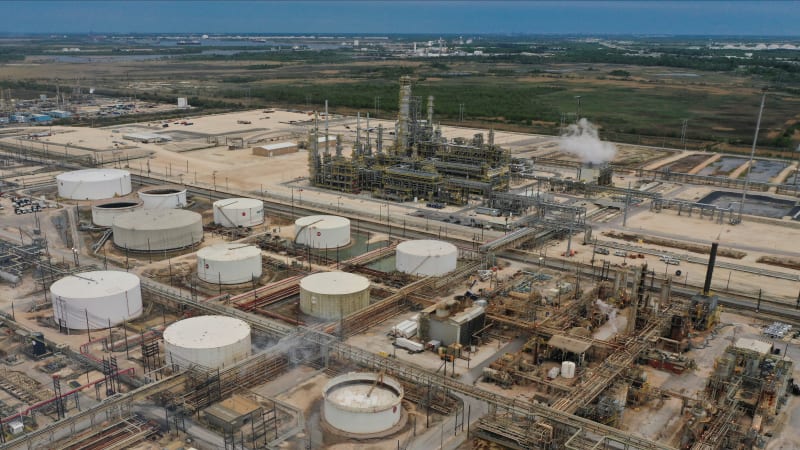Biden’s car emissions crackdown would reduce demand for billions of barrels of oil

The Biden administration’s plan to stifle auto pollution and spur electric vehicles is expected to shrink U,S. oil demand by an estimated 17 billion barrels through 2055.
“We’re strengthening our energy security, we’re reducing our reliance on foreign oil,” and “we’re reducing our reliance on fossil fuels,” Environmental Protection Agency Administrator Michael Regan said Wednesday.
The EPA estimated that its proposal, slated to be finalized next year, would curb U..S oil imports. And though the projected demand reductions would escalate over time, they translate to a 1.6 million barrel per day decline between 2027 and 2055 — roughly 10.2% from current levels, according to Bloomberg calculations.
While the proposal is a potential boon for EV automakers, the expected reduction in liquid fuel demand comes at the expense of crude refiners as well as biodiesel and ethanol producers.
The plan poses “significant downside risk to U.S. gasoline demand” and will leave U.S. refiners more exposed to the export market, potentially forcing some plants to close, said Alan Gelder, vice president of refining, chemical and oil markets at Wood Mackenzie.
The American Fuel and Petrochemical Manufacturers association issued a scathing critique, saying the EPA erred by fixating on tailpipe emissions, rather than opportunities to lower the carbon intensity of fuels across their entire life cycle, such as through carbon capture systems, renewable production and other technology.
Even with the EPA’s expectation that EVs will represent two out of every three cars and light trucks sold by 2032, conventional gasoline-powered cars will be on U.S. roads for decades to come. Internal combustion engines will still occupy more than half of the light-duty vehicle marketplace by 2040, said Emily Skor, chief executive officer of the pro-ethanol group Growth Energy.
“The proposal puts a thumb on the scale for one technology at the expense of others,” Skor said, “rather than giving automakers the flexibility to pursue innovative strategies for decarbonizing light-duty vehicles.”
The EPA is taking public comment on the plan and will use the feedback in finalizing the measure next year. Even so, it faces inevitable legal challenges, and a future Republican president could seek to rewrite the requirements.



